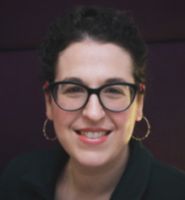The UK is now one of the largest medical cannabis producers in the world, growing nearly half of the world's legal cannabis. In 2016 alone, the UK's production doubled, and it was responsible for 68% of the world's medical cannabis exports.
So, despite this burgeoning domestic market, why is the black market for medical cannabis continuing to thrive in the UK?
The legalisation of medical cannabis in November 2018 was hailed a landmark victory for the British Medical Industry, with scientists, researchers and patients alike welcoming the change. Many patients across the UK who had resorted to self-medicating with cannabis expected the new legislation to finally make their lives easier.
However, the reality is that prescriptions are scarce and those most desperately in need are still being driven to using illegal means. In fact, the UK's illicit cannabis market is estimated to be worth over £2.5bn a year, with as many as 500,000 people in the UK turning to the black market to manage chronic pain.
It is estimated that only a handful of private prescriptions have been issued for medical cannabis, with no new NHS prescriptions being issued since 1st November last year. Unfortunately, this is because many clinicians still lack training on the use of medical cannabis and are reluctant to write prescriptions.
The reality is that patients are finding themselves without clinical support and are turning to illicit avenues for non-grade medical products, which lack sufficient quality control and pose a significant health risk.
One of the key issues here is the educational outreach to both clinicians and patients. Many doctors still don't feel informed enough to prescribe medical cannabis in the UK with interim legislation being widely open to interpretation. As a result, there is a reluctance from doctors and pharmacies alike to risk their license by providing access to medical cannabis.
Initiatives such as the inaugural ‘Women, CBD and Medical Cannabis' conference are making great strides in developing medical practitioner's understanding surrounding the use of medical cannabis in order to overcome this hurdle. However, with the British Paediatric Neurology Association recommending against any prescription of medical cannabis that contains even small amounts of THC, more research is needed for patients with serious health conditions who only respond slightly to CBD.
It is estimated that over a million people in the UK rely on the use of medical cannabis to cope with conditions such as multiple sclerosis, chronic pain and depression, yet prescriptions are not available on the NHS. As a result, seeking a private prescription is the only legal alternative and very few patients are able to maintain the monthly prescription fees.
For the handful of patients who have managed to obtain NHS prescriptions, many have then had their access prevented by local clinical commissioning groups on the basis that there is insufficient evidence for its efficacy. Unfortunately, with such challenging barriers to access, the black market then becomes the more affordable and accessible alternative to desperate patients.
With ambiguity widespread, only by educating medical professionals on the benefits and applications of medical cannabis can we make it more accessible to patients and finally ease patient's dependence on the black market.
Hannah Simon is the Chief Operating Officer at European Cannabis Holdings (ECH) and recently oversaw the launch of the UK's first specialist medical cannabis clinic, The Medical Cannabis Clinics in Greater Manchester. At ECH Hannah is working to create a network of specialist clinics that will offer innovative cannabis treatment to patients who have not found existing treatments to be effective - with the ultimate aim of improving patients' access to medical cannabis. Hannah will be speaking at the inaugural ‘Women, CBD and Medical Cannabis Conference' on Saturday 18th May in London.





